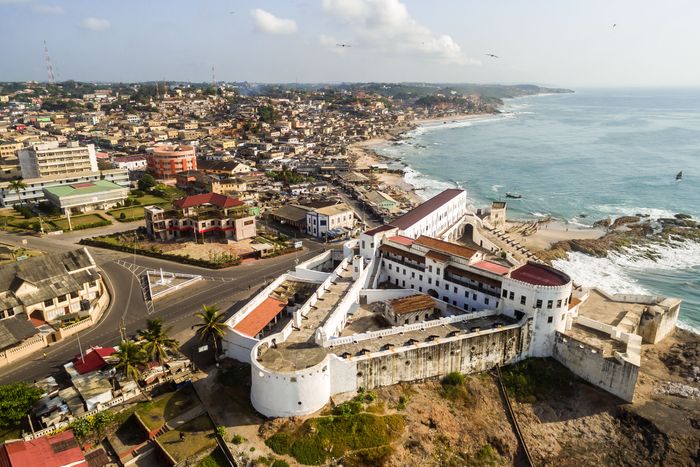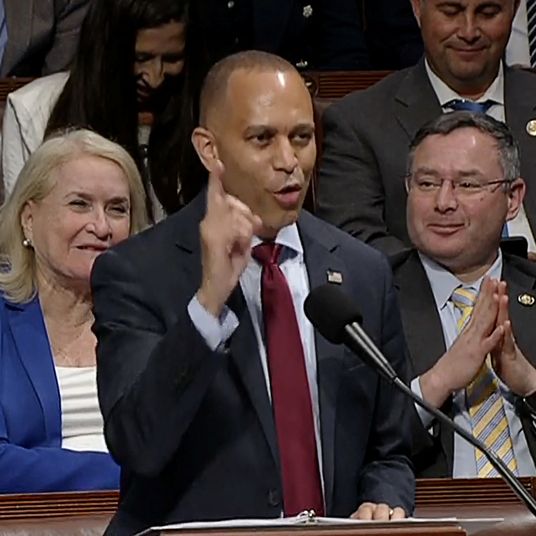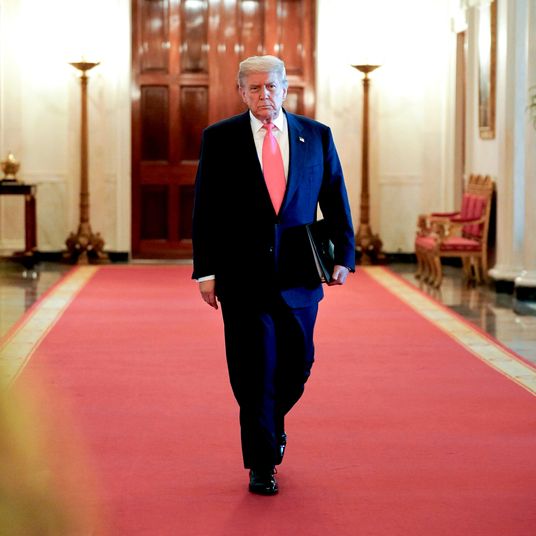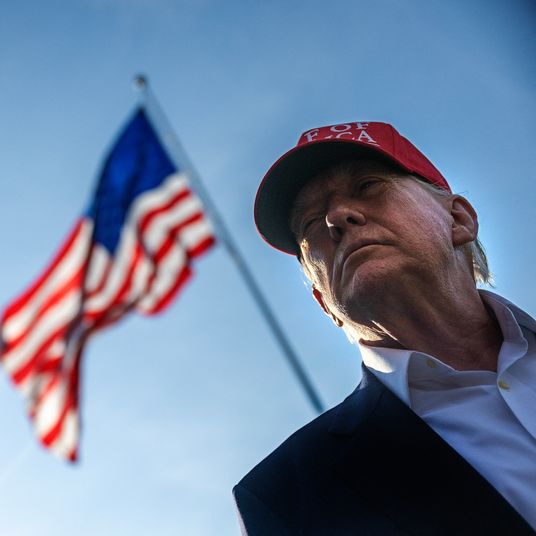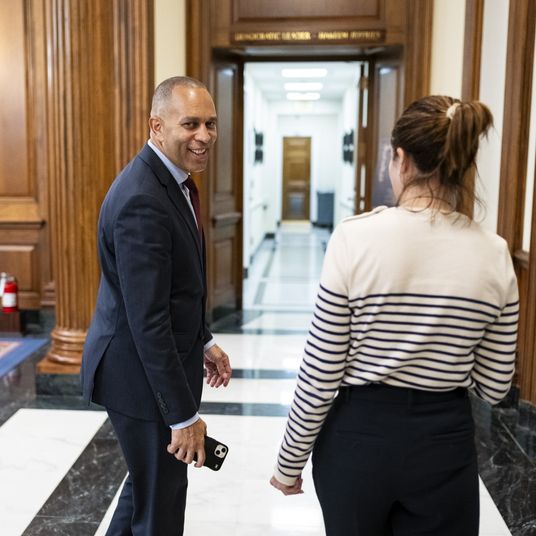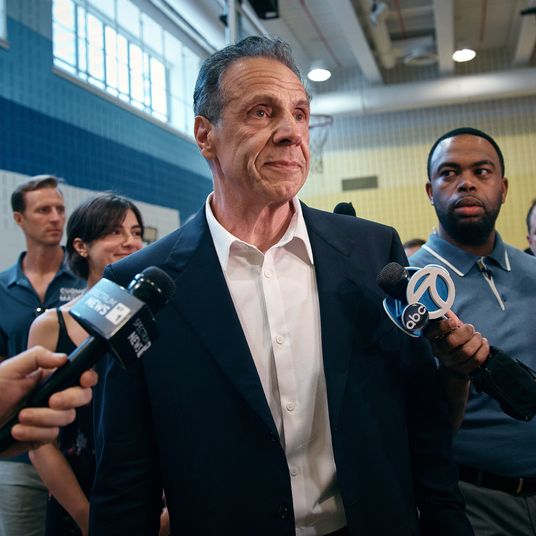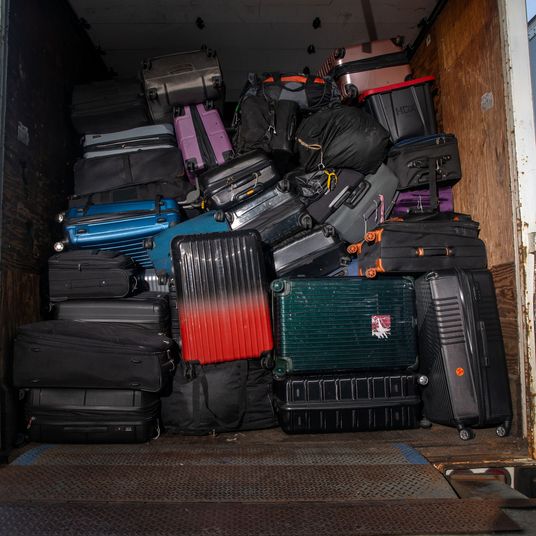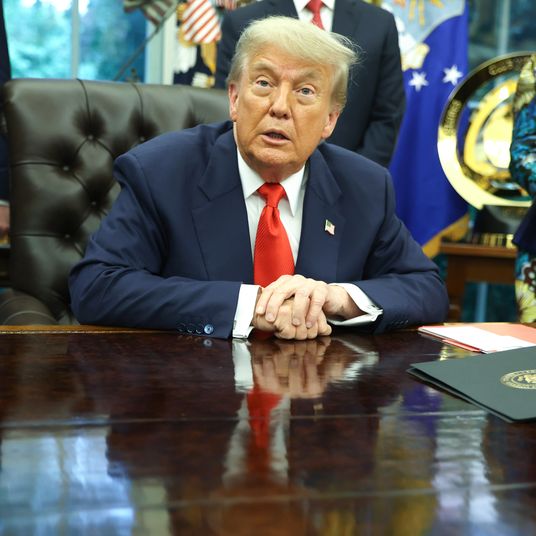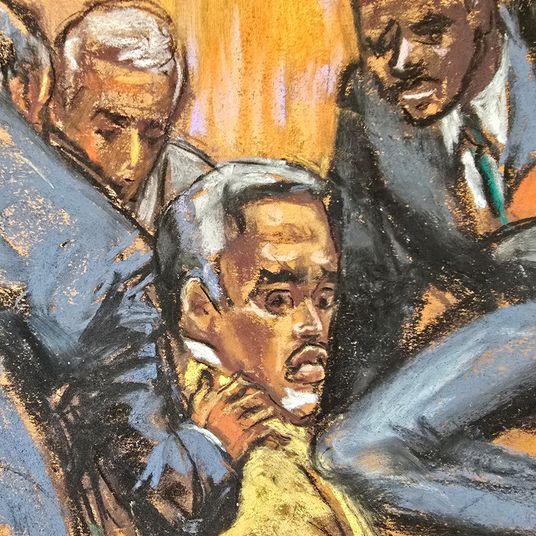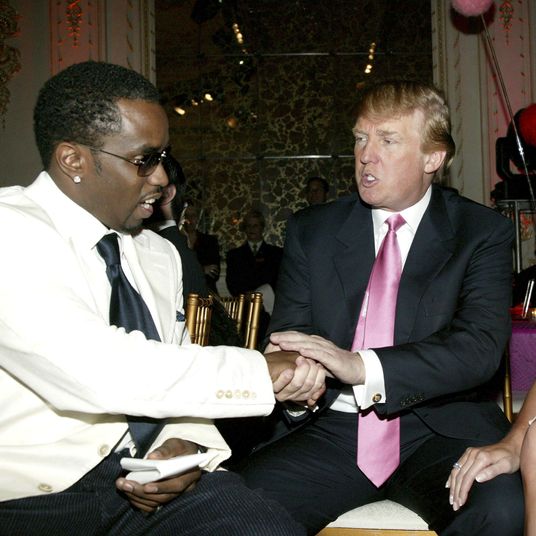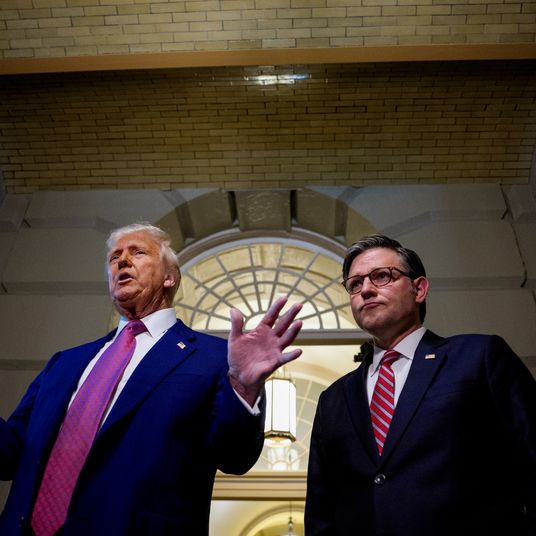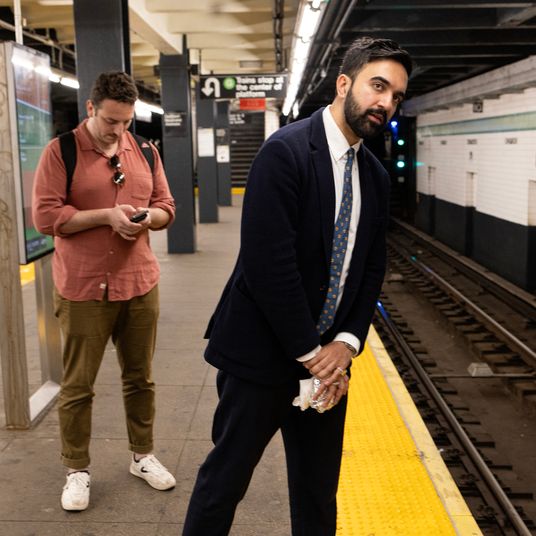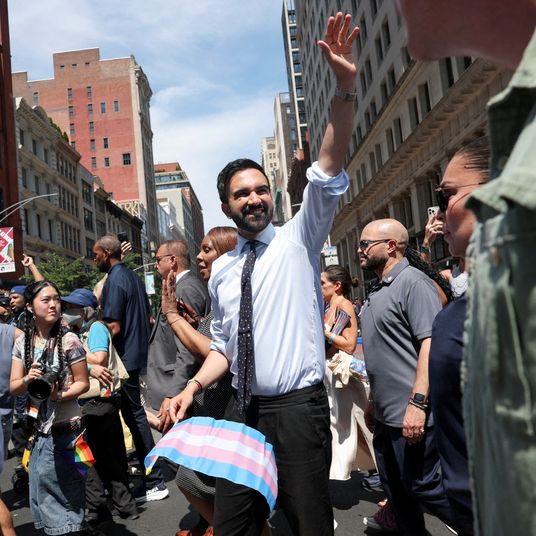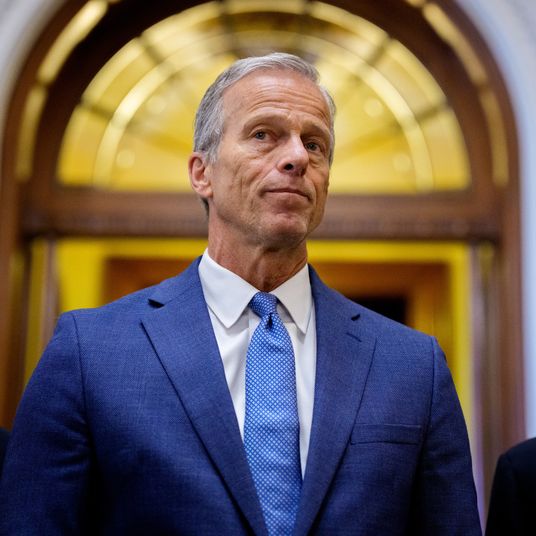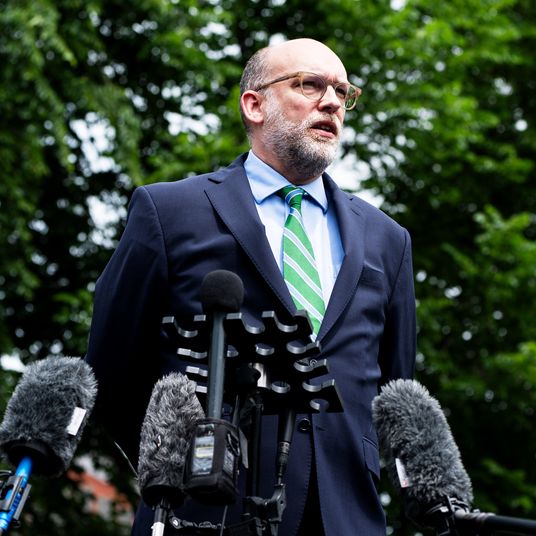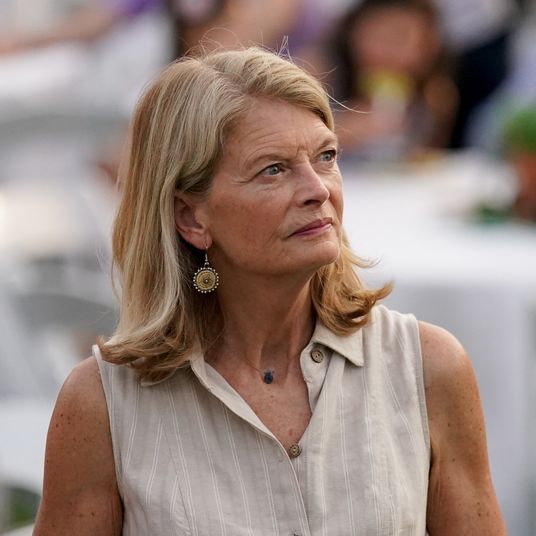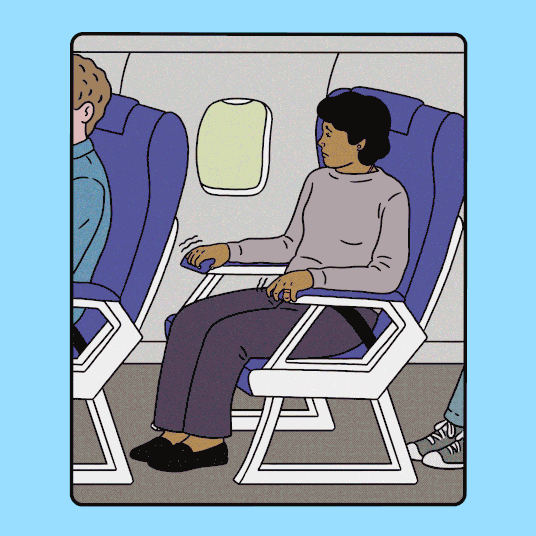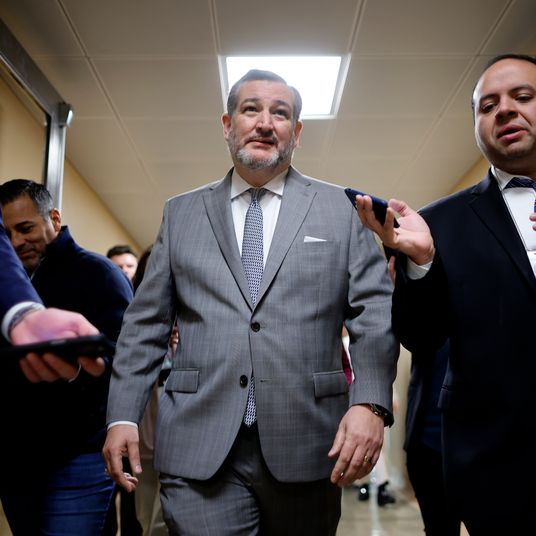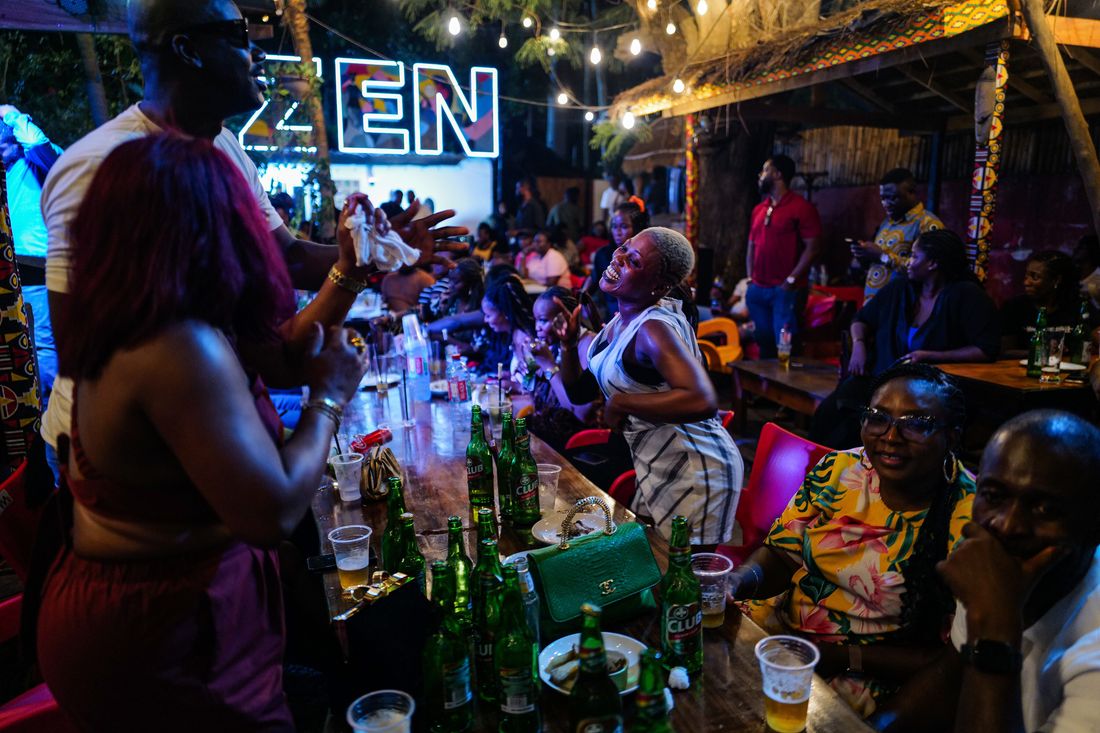
This article was featured in One Great Story, New York’s reading recommendation newsletter. Sign up here to get it nightly.
On January 20, Christa Núñez, a 51-year-old Cornell Ph.D. student and mother of three, booked five one-way tickets to Ghana. “It just happened to be Inauguration Day,” Núñez told me. It was a humid March afternoon, and we were sitting on the rooftop of her friend and fellow recent expat Davi Mozie’s Airbnb in the Osu neighborhood of Accra. “When Trump won, it became a very important date for me,” she said. “I needed to take my family out. I did not want to be present in the country while people were celebrating that.”
Núñez is no stranger to dramatic relocations, often for political reasons. For 11 years, she lived in California, but “the fires kept getting closer and closer to our home.” She and her husband bought a farm in Ithaca in 2017, and during the pandemic, she started a temporary outdoor school there with her “sister-friend” Mozie, a 57-year-old veteran originally from the Bronx. They had been planning to create a travel program that would bring Black children on trips to the African continent when Núñez got a Fulbright scholarship to research Black land politics. She chose to do it in Ghana. (Mozie joined her that month.)
Travel Issues
Travel Issues
When did vacation become so much work?
“I mean, Ghana has this rich and beautiful history,” said Núñez, who was already dressed like a local in a blue wax-print dress. “Not only is it one of the countries that many of my ancestors came from, but it also has this deep connection with African-Americans.” She attends the sister church of her Ithaca congregation, which gives her ready access to a community, and spends her days working through the archives in libraries and historical sites across the region. Her children, ages 16, 13, and 7, go to an international school in East Legon, a wealthy neighborhood, with a mix of Ghanaian and international students. “They like to go to the beach,” she said. “They’re on the swim team. They like to hang out with their friends. They have pizza. They go to our rooftop. They have their same basic life, minus the farm.”
Ghana has always been an attractive destination for the Black diaspora: Following its independence in 1957, its first president, the charming and influential Kwame Nkrumah, invited prominent Black Americans to visit the country. (He even asked the activist and historian W.E.B. DuBois to move there. The 93-year-old was given a house by the state, four servants, two cars, and citizenship. When he died in 1963, two years after his arrival, he received a state funeral.) The country has seen a renewed surge of visitors since 2019, which then-President Nana Akufo-Addo declared the Year of Return, timed to the 400th anniversary of the first arrival of African slaves in Virginia in 1619. In a speech in Washington, D.C., Akufo-Addo pushed Black Americans to travel to Ghana and reconnect with their lost lineage, “brothers and sisters in what will become a birthright journey home for the global African family.” International visitors reached the record number of 1,130,307 that year. The country has continued to enjoy a notable influx of tourists, aided by a government initiative that fast-tracks visa applications for international travelers as part of its efforts to attract members of the Black diaspora.
While fires were raging in Los Angeles in January this year, Mayor Karen Bass was in Accra as a guest of incoming Ghanaian president John Dramani Mahama. Eric Adams had his own much-publicized spiritual-cleansing trip in 2021 amid travel concerns over the omicron variant of COVID-19. Chance the Rapper, Meek Mill, Kendrick Lamar, Dave Chappelle, Stevie Wonder, and Twitch streamer Kai Cenat have all made pilgrimages to Ghana in the past few years.
There’s a smaller contingent of Black Americans, who, like Núñez and Mozie, visit and decide to stay. They are looking to experience life in a majority Black country for the first time. Donald Trump’s presidency, and its attendant animosity, has been a galvanizing force. For these visitors, Ghana represents more than just a vacation spot. Accra is not their Ibiza. It is a safe haven from the racial politics of America.
But this wave of migration has not been without friction. Since 2019, local chiefs have sold or given land to “returnees,” or people of the diaspora, sometimes without the consent of local farmers whose families previously had access to the land. In a grim twist, the beachfront property near historical slave forts has proved particularly enticing to Americans. In the town of Asebu, near Cape Coast, displaced farmers brought a lawsuit against a local chief who offered 5,000 acres of land to returnees, who were able to buy plots at lower prices than they could get in their countries of origin. (A court injunction seems to have been ignored, and construction has continued.) Building a house in Ghana might cost somewhere between $15,000 and $30,000.
For the newly arrived like Núñez, the experience hasn’t necessarily been the homecoming they’d hoped for either, even if its advantages are clear. “Being treated like an outsider in your own home is the norm for me in my own country,” Núñez told me. Living in Ghana as an expat has made her come to terms with certain realities. “I am grappling with that concept of being in Africa and seeing myself as coming home but also being a foreigner.”
Shannan Magee, who prefers to go by her Ghanaian name, Nana Akosua, given to her by a council of chiefs for her “significant contributions,” has lived in Ghana for more than two decades. Like Núñez, Akosua, 50, came to Ghana on a Fulbright, though she arrived in 2003. She moved to Accra from Atlanta semi-permanently in 2004. In addition to being an admissions consultant for Ghanaians looking to get into colleges in the U.S., she is the president of the African-American Association of Ghana, or Triple AG, an organization that helps Black American tourists and expats resettle in Ghana. “They just tired of the b.s. in the States, and they’re looking more or less a peace of mind,” she said.
She asked me if I’d read All God’s Children Need Traveling Shoes, Maya Angelou’s 1986 memoir about the three years she spent living in Accra shortly after the nation became free of British colonial rule. “If you were to read that book, it would sound like she just got off a plane and came last week,” Akosua said. It is a time capsule of Accra in the ’60s, the heyday of collaboration between “revolutionary returnees” — who were often involved in civil-rights activism back home and emigrated to witness a young Black democracy — and their African counterparts. Angelou, working at a local university, toggles between her delight at living among Ghanaians (“I was soon swept into an adoration for Ghana as a young girl falls in love, heedless and with slight chance of finding the emotion requited”) and candid disappointment at how indifferent they seemed to the presence of Black Americans (“Our arrival had little impact on anyone but us. We ogled the Ghanaians and few of them even noticed. The newcomers hid disappointment in quick repartee, in jokes and clenched jaws”).
Today, Akosua said, “it’s the same issues, the same everything.” What pulls Americans to Ghana is the romantic longing to be in a place where everyone is Black and the realities of American racism feel far away. “People want that African euphoria,” she said. For Akosua and many others, that means partaking liberally in Accra’s nightlife. Detty December, a catchall term for a series of parties and events held that month in Accra and neighboring Lagos, Nigeria, has become a staple. Black people from all over the world descend upon Accra. The parties are raucous affairs with club appearances from famous African and American musicians and can last until 9 a.m. “Ain’t no police presence, ain’t nobody batting you down. You’re not going to get shot,” said Akosua. “You can go and enjoy yourself; there’s no club closing at one or two. So it’s a completely extreme paradigm shift. Even in big American cities like New York, you have something like last call for alcohol; we don’t have that.”
And then there’s the option of luxury living at a cheaper price. In West Legon, a tony neighborhood that caters to expats, Akosua pays $350 a month for a 3,000-square-foot house with five bedrooms and four bathrooms. “If you’re in New York, you’re paying $3,000, $4,000 for an apartment when you can take that and live for a whole year in an accommodation with some nice amenities.”
Those are all benefits, to be sure, but for Akosua, the moment she decided to start dividing her time between Ghana and the U.S. came after one rowdy night out around 2004. She’d fallen asleep in the car taking her home. At a checkpoint, the police woke her up. They asked her if she was okay and made sure that she had not been drugged. They did not let the car go until they were certain she was safe.
Ghana has its own history of police violence, and there have been protests against law enforcement as recently as 2023 — but Akosua believes that American police officers would not have been so concerned about her well-being. She has seen many Black Americans arrive in Ghana and within weeks seek out more permanent or long-term options. “People come for their reasons,” Akosua told me. “They come running away from something, or they come looking for something. Sometimes it’s both.”
A few days after I spoke with Akosua, I visited Elmina Castle with a group of Black American tourists. Built in 1482 as a Portuguese trade settlement, the castle is a weathered, split-level stone fortress held together by buttressed walls and iron rivets. It sits on Ghana’s coastline. The castle’s main entryway leads into a large courtyard where dark dungeons and cells are visible on the ground floor. Inside the holding cells, you can see scratch marks made by the enslaved. “The walls and the floor have been kept the same,” said the castle’s guide, Frederick Mensah, who spoke in the style of a charismatic preacher. The cell had a sharp chemical smell. Wreaths left by Americans, apology letters from Portuguese tourists, and liquor from Caribbean visitors meant to honor their ancestors had been placed in the dungeons. Afterward, Mensah urged us to patronize his mobile bookshop for literature on the history of slavery.
In 1979, UNESCO named Elmina Castle a World Heritage Site for its central role in the transatlantic slave trade. Because of and despite this dark history, that site and Cape Coast Castle, an eight-mile drive from the town center, are popular tourist destinations.
“These are some of the best lands,” said another tour guide, an avuncular man known as Mr. Morris. He explained to our group that Black Americans were drawn to this area for its proximity to what he views as not castles but dungeons. One tourist wanted to know how much the land here cost. Mr. Morris was doubtful that there was much still available but estimated that an acre might cost something like $25,000.
Hanna Atiase, the founder of E. Wells Realty & Consultancy, one of Ghana’s most prominent real-estate firms, saw an opportunity to capitalize on Black American interest in living in Cape Coast early on. A Ghana native, she lived in the U.S., the U.K., Ethiopia, and Kenya before settling back home in 2013. She founded her company in 2014; its portfolio includes sought-after land along the coastline in Cape Coast in addition to luxury rental properties in parts of Accra favored by tourists, such as Osu, North Ridge, and Cantonments. Around 90 percent of Atiase’s clients so far have been from the Black diaspora or are international buyers. She understands why Black Americans have an interest in owning land in Ghana. “Now you’re owning a piece of your heritage, and there’s always that point of reference to be able to come back and say, ‘Yes, this is where my ancestors were taken away from,’” she said.
Some of these development projects that profit from the notion of diasporic unity have yet to break ground. But they are telling in their ambition. Atiase sent me prototypes of seven-floor beachfront condos, with rooftop gardens and a large pool area, surrounded by miles of sand. A rendering of Wakanda-One City of Return, a Cape Coast resettlement community announced in 2020, shows futuristic-looking towers modeled on the fictional Wakanda, the African city from Black Panther.
Atiase was surprised when I asked her if her company had encountered any pushback from Cape Coast locals. “We are bringing jobs. We’re going to hire a lot of people during the construction phase and even post-construction because we have a restaurant there. We have retail stores; we have a gallery.” All the properties for sale on E. Wells’s site are listed in dollars, with studio apartments in desirable areas going for around $160,000 and plots of land for at least $30,000.
Meanwhile, in Accra, young Ghanaians are experiencing a housing crisis. Ama Asantewa Diaka, a 36-year-old neo-soul artist, has seen frequent rent hikes over the years. Having lived in the U.S. before choosing to move back home, Diaka told me the problem was not the interest people from there have in being in Ghana. “Black Americans have settled in Ghana for decades and either made family or found family,” she said. She was more concerned with the unchecked profiteering by developers and landlords.
There have been occasional protests against developments like the Pan-African Village in Asebu, where locals have resisted displacement. But those are rare. “Much of the ambivalence Ghanaians have is connected to benefits they get from the tourism boom. This creates a kind of myopia,” said Yaw Atuobi, a 30-year-old researcher who works with the Foundation for Contemporary Art. Atuobi lives in Ashaley Botwe, a suburb about 30 minutes from Accra. Previously accessible sections of the lakefront in their neighborhood, they said, had been bought by a developer: “People are talking about it or making commentary about it, but there’s no cohesion.” When I spoke with Atuobi a second time, they said they were in the process of relocating because their landlord had discontinued their lease.
Núñez has an idealistic view of her time in Ghana. “When we dream of Africa, that dream is really simple: I’m coming home to my homeland, period — end of story,” she said. She and her family have decided to spend half the year at their farm in Ithaca and the other half in a place outside Accra. Núñez and Mozie don’t think of themselves as tourists in Ghana and don’t readily claim the title of “migrant,” either, because of the baggage it comes with. They hope to become fully integrated into Ghanaian life. When I asked if they were considering getting property at some point, Núñez said “yes” but insisted that the process would have to align with her ethics around land dispossession.
When Ghana and Chad played for a qualifying spot at the 2026 fifa World Cup in March, Núñez and her family went to the stadium to cheer for Ghana. On the car ride there, she rolled down the windows and chanted slogans along with the crowd around the stadium: “I don’t even like soccer or football. I’m not a big fan. But it felt good to be wrapped up in the spirit of that.” As we spoke on Mozie’s rooftop, the two women pointed out a restaurant in the distance that they wanted to check out. They planned to do some traveling in the Volta region with a friend later in the year. Both Mozie and Núñez have submitted their names for citizenship.
More Travel Issues
- Your Lost Suitcase Is Probably in Alabama
- How I Fixed My Fear of Flying — By Embracing Something Worse
- Have ‘Best of’ Lists Made Travel More Bland?
